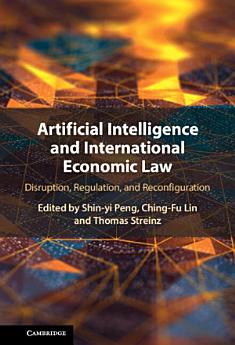Artificial Intelligence and International Economic Law: Disruption, Regulation, and Reconfiguration
Über dieses E-Book
Autoren-Profil
Shin-yi Peng is Distinguished Professor of Law at National Tsing Hua University. She is a former Commissioner of the National Communications Commission of Taiwan and has served as Vice President of the Society of International Economic Law. Professor Peng is also a member of the Indicative List of Panelists for resolving WTO disputes.
Ching-Fu Lin is Associate Professor at National Tsing Hua University, where he teaches artificial intelligence law and policy, international law and global governance, and law and technology.
Thomas Streinz is Adjunct Professor of Law and Executive Director, Guarini Global Law and Tech at NYU School of Law. He co-convenes the Guarini Colloquium: Regulating Global Digital Corporations and co-teaches a course on Global Data Law. He is also an editor of Megaregulation Contested: Global Economic Ordering After TPP.






